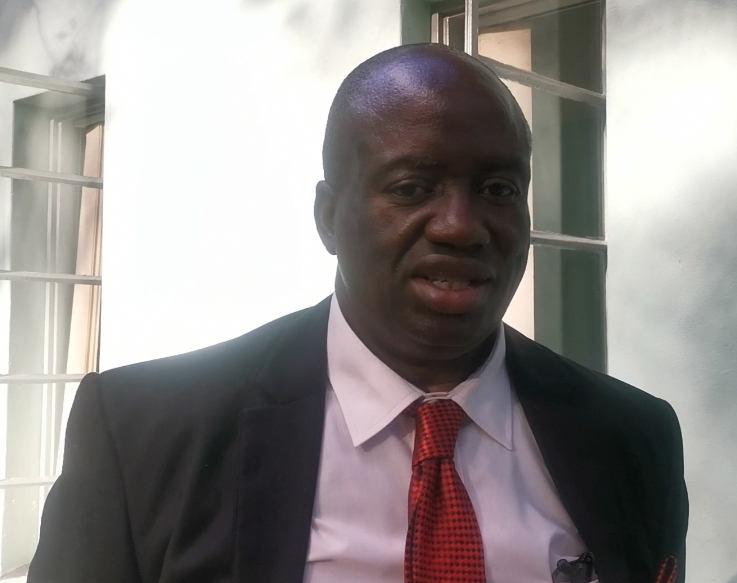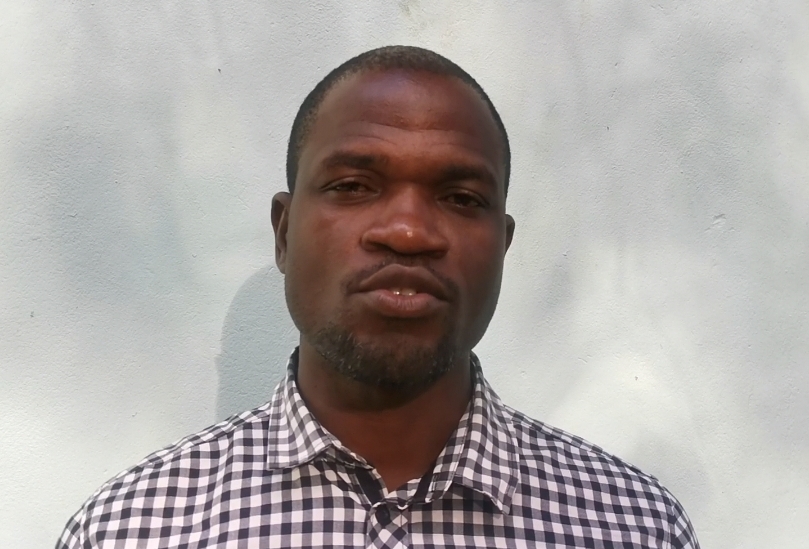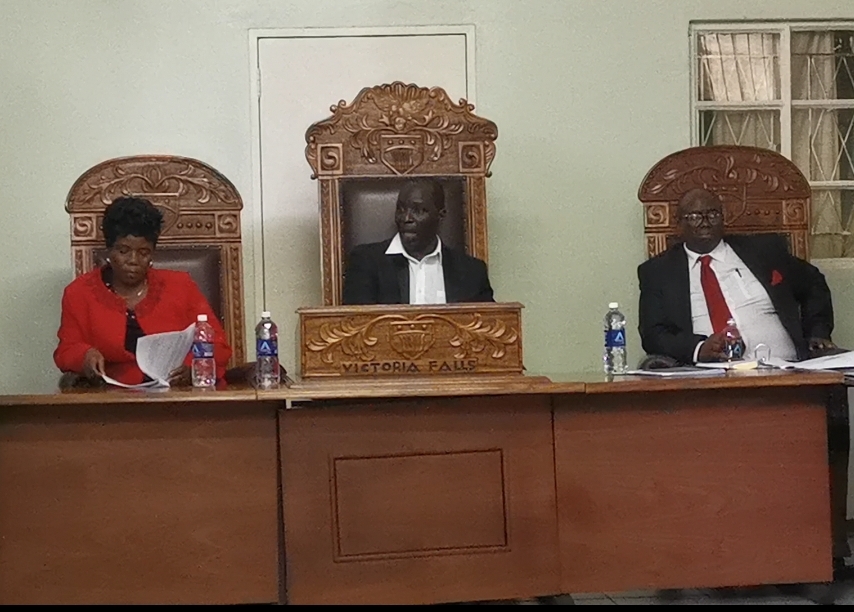BY NOKUTHABA DLAMINI
A special full council meeting meant to present the findings of a commission of inquiry set by the Ministry of Local Government and Public Works to investigate claims of corruption against Victoria Falls City town clerk Ronnie Dube failed to take off on Tuesday after the city’s mayor and councillors came to a standoff over who should preside over the discussions.
Minister July Moyo set up the probe team late last year after resident’s activists and the mayor Somvelo Dhlamini levelled corruption allegations against the local authority’s management head.

Earlier this month, the ministry brought the findings of the report for adoption which was meant to be tabled to a full council, but failed after Dhlamini was confronted by ward various councillors accusing him of breaching the law.
“You can’t chair the meeting when you are an interested party,” ward three councillor Lungile Nyoni charged first.
This was after Dhlamini had asked his deputy mayor Patricia Mwale to pray ahead of the meeting.
“You are misleading the council and you can not chair also because of your court case,” he added.
“You are supposed to sit there as the residents because you are an interested party because that’s what was said by the minister regarding this matter. ”
The two exchanged some harsh words as the mayor demanded to be provided with an act that prohibits him from chairing the meeting despite being the complainant into Dube’s allegations.
“Which law?”Dhlamini quizzed.
“I said come with the law and if it’s there, I will listen to your reasons…
“I am supposed to chair this and discuss it with the chamber secretary’s office because I have to know what we are talking about.”
Moments after, the argument was paused after Nyoni suggested that he should call the minister to give him a go ahead to chair.
Dhlamini and Dube then stepped out of the board room to call Moyo, but came back to report that he was not answering his mobile phones.
Dhlamini then insisted to go ahead with his decision to chair or temporarily adjourn, but again was interjected by ward one councillor Tonderai Mutasa who advised him that it was against the law as he was an interested party.
Mutasa’s sentiments were also echoed by ward 11 councillor Edmore Zhou.
“So if we are saying we are adjouning the meeting because the mayor said we have to and at the same time you are saying he is not supposed to chair the meeting, surely for me it doesn’t balance,”Zhou said.
“We are here with the residents, we need to do the correct things and if we are saying the mayor is not supposed to chair, he doesn’t have the power to adjourn the meeting so that’s why residents can not take us serious because we won’t be doing the right thing and in accordance with our the law, so he should do the right thing. “
“I will not step down,” Dhlamini charged.
“I will never. ” he added.
Zhou then went on to quiz why Dhlamini had stopped attending some committee meetings that have nothing to do with the report’s findings.
However, other councillors wanted the meeting to proceed with Dhlamini chairing, on condition that he signs down as they were worried about wasting the resident’s time and council expenditure to host such meetings.
Following the back and fourth which led to some resident’s activists to get agitated, Dhlamini announced that the meeting will be adjourned to allow the minister to respond together with a supporting act on why he should not chair.
Dube and Dhlamini have been in the eye of a storm since the arrest of Dhlamini in October on allegations of fraud emanating from the acquisition of a housing stand from the local authority.
Dhlamini was arrested shortly after a group of war veterans and members of the Hwange Residents Association raided the town clerk’s office and force marched him out
The group said they wanted Dube to step aside to allow for investigations into allegations of corruption levelled against him to be concluded first.
Few days after, war veterans from Matabeleland North convened a meeting that was attended by over 300 residents to discuss the corruption allegations against the local authority.
Victoria Falls Combined Residents Association (Vifacora) executive member Trymore Ndolo told the meeting that they had information allegedly showing how Dube and some councillors ‘corruptly’ sold commercial prime land known as Stand Number 8300 which was earmarked for a water, hygiene and sanitation project, was sold for US$4 million instead of US$14 million that was agreed to by a full council meeting.
The report was meant to address its findings on such allegations among others.
After the meeting, Vifacora chairperson Kelvin Moyo expressed disappointment in the capacity of some officers and councillors.

“We are very much disappointed in what ended up happening, I think all counsillors when they are getting to council they know what they are expected to do, the rules and procedures of the law, but it wasn’t so because there was unparalleled ignorance that was displayed by some of the officers and counsillors,”he said.
“As residents, we feel that we are shortchanged in terms of the rate of which the service delivery in concerned because we were hoping that the findings were going to be presented at the end of the day so as residents, we should look at the capacity in understanding issues and adjudication so much so that it can all come to the benefits of the residents.”
The town clerk also called on the minister’s intervention.
“This stems from the fact that the moyor has a pending case in court and the minister (Moyo) issued a circular in February 2022 directive which stated that all council officials with pending cases should remain barred from council and this is the same interpretation which we have,”he said.
Dube revealed that the authority has written three letters to the minister seeking clarity on the matter, but none has been responded to.
“Going forward, we are going to consult again this time indicating that this scenario will render council dysfunctional.”

 Slider3 years ago
Slider3 years ago
 National4 years ago
National4 years ago
 Tourism and Environment4 years ago
Tourism and Environment4 years ago
 Opinion4 years ago
Opinion4 years ago
 Special reports4 years ago
Special reports4 years ago
 National4 years ago
National4 years ago
 National3 years ago
National3 years ago
 National1 year ago
National1 year ago






Natasha Queale
January 19, 2023 at 1:36 pm
Dear Valued Customer,
Are you tired of trying every weight loss solution on the market with little to no results? Look no further! Exipure has revolutionized the weight loss industry with our all-natural, scientifically proven products.
Our weight loss supplements and meal plans are designed to help you lose weight in a healthy and sustainable way. By suppressing your appetite, increasing your metabolism, and helping you feel full, our products make losing weight easy and effortless.
We invite you to visit our YouTube channel to learn more about our products and hear success stories from real customers who have seen amazing results with Exipure.
https://www.youtube.com/playlist?list=PLUyqTXe1dSbyveBg6pBQu5_SsM8C6CSQx
Don’t wait any longer to achieve your weight loss goals. Try Exipure today and start feeling and looking your best.
Best regards,
The Exipure Team.
Website: https://exipure.ltd/